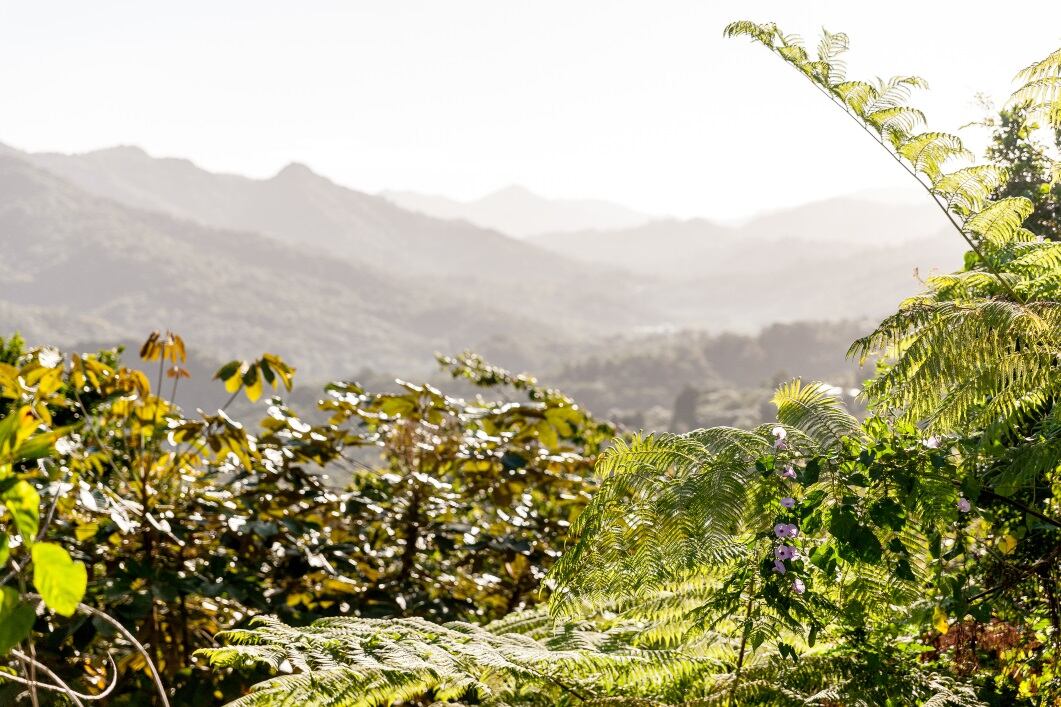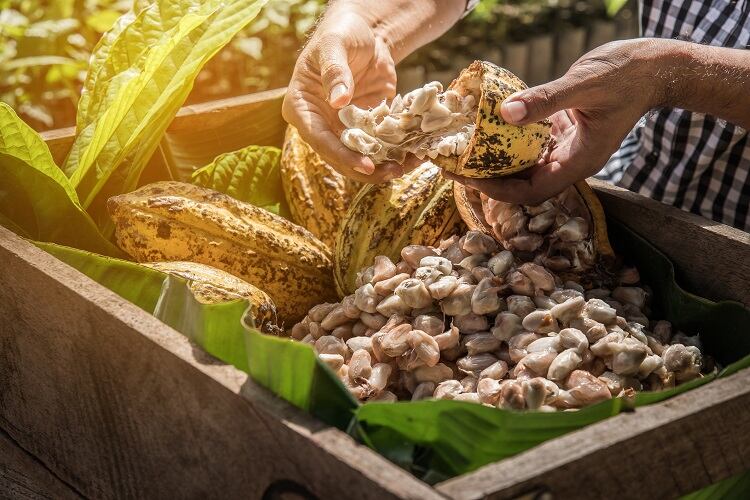Reviving Origins was established last year to create a ‘meaningful impact’ on global farming communities where coffee growing is coming under pressure.
“There is a threat to certain coffee regions now,” Nespresso executive Alfonso Gonzalez Loeschen told us. “There are certain countries or certain regions around the world that produce very rare coffees and production has gone dramatically down during the past 10 or 20 years.”
Problems range from conflict, to environmental disasters, climate change and economic hardships. Gonzalez Loeschen points to the example of Puerto Rico where Hurricanes Maria and Irma devastated coffee communities.
“The hurricanes that happened in recent years wiped out 80% of production,” he reflected.
Through Reviving Origins, Nespresso committed US$1m as a part of a three-year initiative with the Hispanic Federation and other organisations to help revitalise Puerto Rico's coffee industry. Today, Nespresso provides training and support to 450 farmers in the country with help from TechnoServe.
Nespresso has also donated 160,000 trees to farmers in support of the Hispanic Federation’s goal to plant 2.25 million new coffee trees on the island.
A collaborative approach is important for Nespresso's efforts to achieve maximum impact, Gonzalez Loeschen believes.
"Our focus is on how can we rebuild sustainable and productive coffee farming communities. We cannot do it alone. So, again, it is about partnerships. We partner with different NGOs, we partner with a farming communities, we partner with different organisations in each of the markets in order to be able to do things in a sustainable and long-term way."
Local conditions require local solutions

Reviving Origins operates in four other countries: Colombia, Uganda, Zimbabwe and – its most recent addition – the Democratic Republic of Congo.
Each initiative builds on Nespresso’s AAA sustainability programme – which aims to deliver a ‘triple win’ around improving quality, productivity, and sustainability. “AAA is built on three pillars of impact. One is quality – how do we help farmers increase the quality output of their coffee. This, in turn, increases revenue and access to new markets for those farmers. The second axis is productivity – how we help them… improve yields through sustainable farming practices. This gives them income stability and builds on the third pillar, social and environmental sustainability, protecting natural capital.”
Reviving Origins is tailored to the local needs of farmers in regional hotspots where they are impacted by specific problems. In Colombia, for example, the conflict caused by the drugs trade is a major issue that requires a distinct approach to that taken in Uganda, where climate change and drought is the biggest problem.
“Supporting sustainable farming practices, social and environmental sustainability, and looking for productivity and high-quality coffee, that's common to our approach globally,” Gonzalez Loeschen explained. “In Reviving Origins we are going into places that are a little bit more difficult. Infrastructure is much worse than in other places because it's suffered for different reasons.”
Nespresso is adding Congo to its Reviving Origins initiative. In order to support coffee production in Congo, Nespresso is trying to help address some of the infrastructure issues that have arisen, particularly around access to healthcare and water.
Through a collaborative model unique to the country, Nespresso is working with Asili, the social business platform of Eastern Congo Initiative (ECI), TechnoServe and Olam. The partners are working with farmers to provide state-of-the-art agricultural expertise, improve access to clean water, and open new clinics to provide healthcare services for over 80,000 people in coffee farming communities in eastern Congo by 2024.
Bringing back ‘forgotten coffees’
On the one hand, Reviving Origins is about supporting coffee producing communities and the particular difficulties they face. On the other, it is about delivering high quality unique coffees to Nespresso’s consumers.
“Reviving origins [delivers] social impact, revitalising their coffee farms to be more sustainable while bringing back to life some of the world’s rarest coffees,” Gonzalez Loeschen elaborated.

Each of the Reviving Origins initiatives is linked to a single origin Nespresso coffee product.
Esperanza de Colombia is a ‘rounded’ coffee from Caquetá, notable for ‘fruity notes and fine acidity’; Cafecito de Puerto Rico is an ‘intense, creamy espresso’ with overtones of cocoa and black pepper; Amaha awe Uganda, launched globally in May, is a ‘rich and clean espresso’ from the Rwenzori Mountains that carries ‘sandalwood notes and elegant florals’; Tamuka mu Zimbabwe is a ‘complex and bright coffee' from the Honde Valley. Kahawa ya Congo, the latest launch that will initially be available in the US, uses certified organic coffee that is ‘smooth with nutty, cereal-like aromas’.
“Tasting is believing,” Gonzalez Loeschen said of these rare coffees.
In this way, Reviving Origins is a brand with a unique value proposition for today’s sustainably-minded consumers.
“It’s sustainable coffee that goes the extra step. There is an additional layer of impact in the regions. We're the first to be able to tell those stories, consumers can have an impact just by purchasing one of those coffees. This really is a tangible representation: every time they have a coffee, not only can they enjoy a very rare coffee, more importantly, you feel good about the coffee that you're drinking.”


